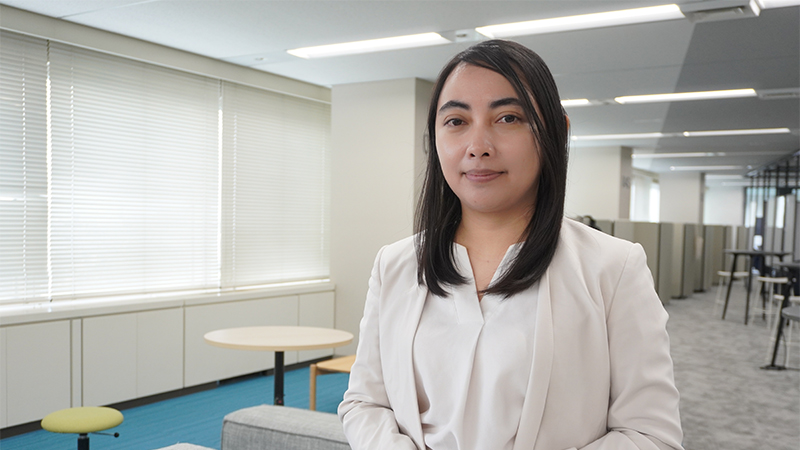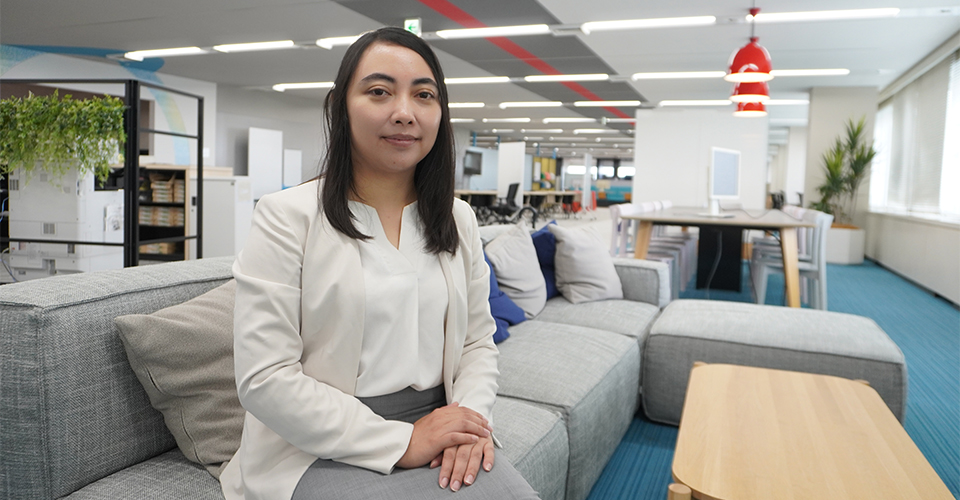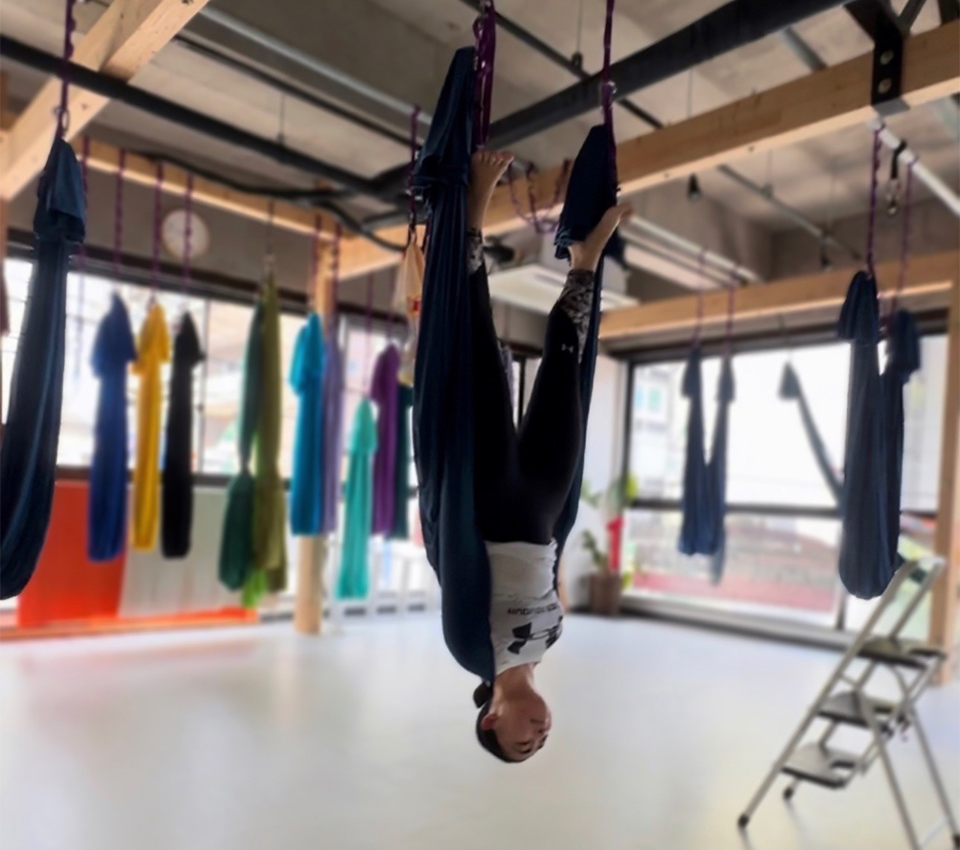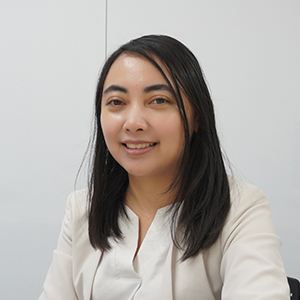Unlocking the future: exploring the potential of authentication technologies
Lina SeptianaData & Security Research Laboratory

Inspired by science fiction to develop an interest in technology
As a child, I was captivated by science fiction, particularly movies like RoboCop. The movie showcased advanced technology, and I wondered, "What if we could actually achieve this in real life?" Even though AI wasn't widely popular back then, the movie made it seem possible. I was fascinated by the idea of how advanced technology could transform the world, especially by making society safer and more efficient. This early interest sparked my curiosity in technology and led me to dream of one day contributing to innovations that could have a meaningful impact on people's lives.
The complexity of developing various modalities for authentication technologies
At Fujitsu, my research has focused on developing authentication technologies to enhance security across various applications, such as secure access control and surveillance. Over the years, I've gained experience in various modalities, ranging from facial recognition and palm vein analysis to appearance and behavioral patterns, adapting to the evolving demands of each.
The biggest challenge has been ensuring that these systems remain reliable and effective across diverse environments. For example, a system used in an indoor room might perform differently compared to one used in natural lighting or with different camera angles. This has required continuous innovation with advanced algorithms, leveraging real-world data, and close collaboration with other team members.
To address the challenge of developing advanced algorithm, we carefully consider the data used to train our systems. Collecting data under a clear license is crucial, but it's challenging to ensure compliance with privacy rules, licensing agreements, and legal requirements. Data collection must be handled with extreme care. Moreover, there's often a gap between the training data and the real-world data used in applications. To handle the complexity of diverse data with varying characteristics, we have developed a comprehensive and technically robust approach.

To create robust and reliable systems
Our strategy integrates domain generalization to enhance model adaptability across different domains while carefully selecting core features that remain stable under various conditions. We employ data augmentation to simulate a broad range of scenarios, enhancing the model's robustness. Additionally, we perform similarity score analysis to guide further optimization and meticulously adjust the loss function to align with real-world application requirements. This multi-layered strategy ensures that our models are both resilient and effective, even when faced with significantly different training and real-world data.
Through continuous innovation and advanced R&D, we've been able to create robust and reliable systems for various security applications. It's incredibly fulfilling to see our efforts translate into real products (*1), especially when those products become useful, trusted, and valued by people.
How my life enriches my work
Besides my research, I really value having a balanced life filled with good times and meaningful connections. Spending time with family and friends is important to me, and I love traveling to experience different cultures and ways of thinking. Seeing the world opens my mind and helps me adapt to new situations, which is really helpful in my work. To stay healthy and energized, I like to do things like aerial yoga, cycling, and swimming. And when I have time off, I love to go hiking – it's a great way to get back to nature and often gives me new ideas. This whole approach helps me feel happy and inspired, both in my work and in my personal life.

Embracing technology innovation while protecting privacy
My goal is to continue innovating and staying responsive to technological advancements. I believe authentication technologies has a very promising future. It's likely to become an integral part of many aspects of our lives, particularly in areas like payments. However, one of the biggest concerns is privacy. People might be apprehensive about being tracked and monitored constantly. It's important to strike a balance between security and privacy. We need to ensure that authentication technology is used responsibly and ethically.
Like many others, I've always been deeply inspired by Albert Einstein. His ability to think about concepts that no one else had considered, such as the theory of relativity, is truly remarkable. It reminds me that anything is possible with the right mindset and creativity. This belief continues to guide me in my work, encouraging me to explore new ideas and push the boundaries of what’s possible in my research. I aim to explore beyond current focus areas, continually pushing the boundaries of what's possible, just as Einstein dared to imagine a universe where time and space were intertwined.
Editor's note
Lina mentions that she was a curious and imaginative child, always interested in exploring how things worked, especially in the realm of science and technology. She is happy that her childhood interest in the potential of technology has blossomed into a professional commitment to advancing these fields. Beyond her research, she also hopes to guide and support younger researchers, sharing her experiences to help them grow in their careers. (Xiang Yi Peck, Technology Strategy Unit)

Titles, numerical values, and proper nouns in this document are those reported when this interview was made.




